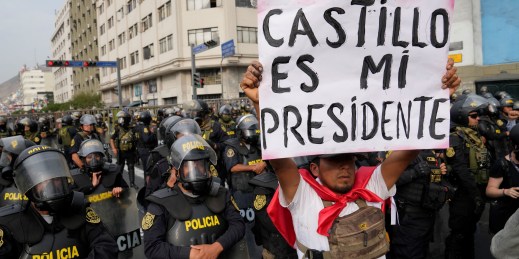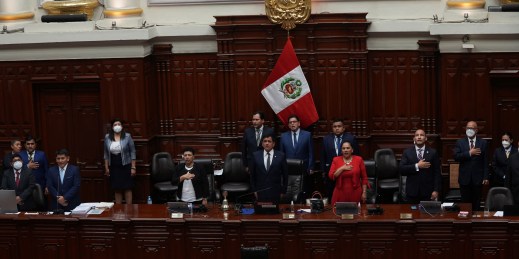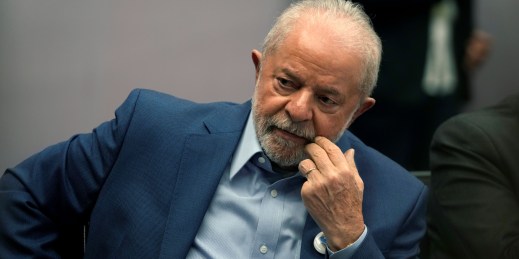
The dispute over Pedro Castillo’s removal as president in Peru is the latest messy transfer of power in Latin America and another instance when regional governments could not agree on a basic interpretation of events. More broadly, the region’s democracies face two related challenges: creeping authoritarianism and election denial.


